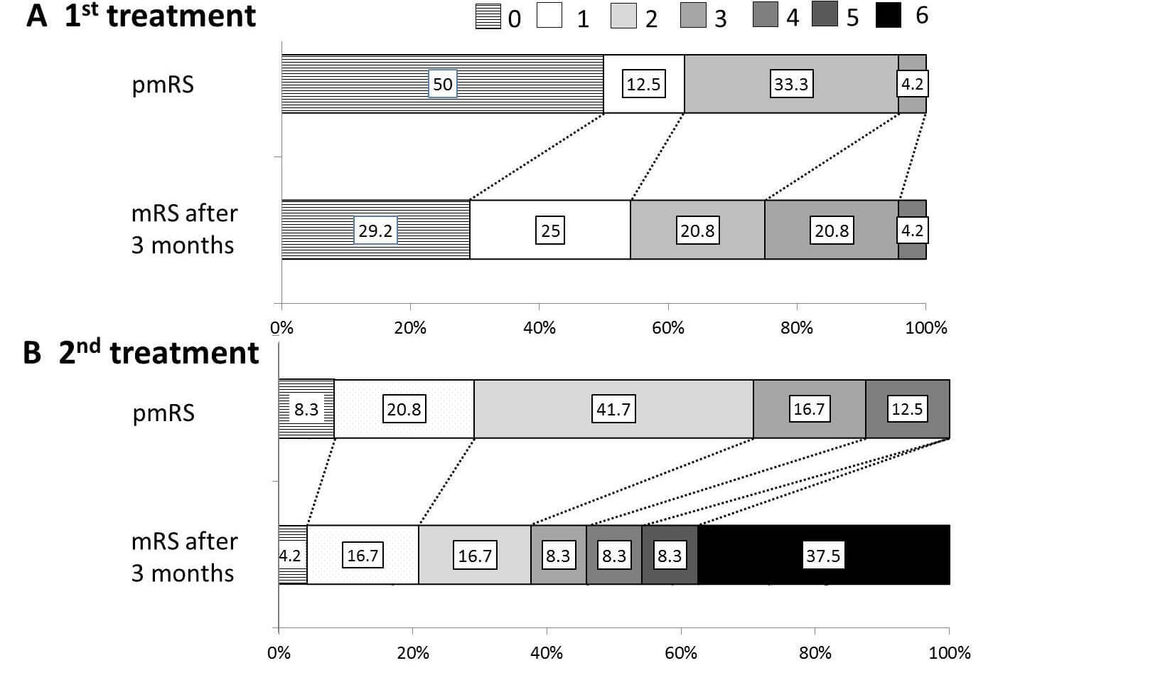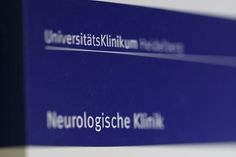Atrial Fibrillation and Oral Anticoagulation
OVERVIEW
Atrial fibrillation and oral anticoagulation at onset of stroke represent a frequent challenge for clinicians treating stroke patients during the acute phase (Rizos Cerebrovasc Diseases 2012; Horstmann Journal of Neurology 2013). Our group is dedicated to investigating various aspects of the emergency management and secondary treatment in stroke patients with atrial fibrillation and in neurological patients using oral anticoagulants (Rizos Annals of Neurology 2010; Rizos Stroke. 2009; Laible Cerebrovascular Diseases 2016; Laible Annals of Emergency Medicine 2016). Moreover, we evaluate the role of systemic thrombolysis in specific subgroups of stroke patients (Laible European Neurology 2016). At present, one of our primary aims is to better understand the pathophysiology of atrial fibrillation after stroke (Rizos Stroke 2016) and we aim to improve the acute management of oral anticoagulated stroke patients. For this purpose, we strongly collaborate with different international and national partners. Members of our group represent the core of the large multicentre registry “RASUNOA-Prime” (Register Akuter Schlaganfälle Unter Neuen Oralen Antoikoagulantien; https://clinicaltrials.gov/ct2/show/NCT02533960; Veltkamp Dtsch Med Wochenschr. 2015).
Future work will focus on the role of acute stroke treatments in neglected patient groups and we will further evaluate questions regarding the coagulation status in stroke.
Prof. Dr. med. Timolaos Rizos
Arbeitsgruppenleiter
(AG Vorhofflimmern und orale Antiokoagulation)
Neurologische Intensivmedizin und Notfallmedizin.

Aim
Vorhofflimmern ist für ~25% aller Schlaganfälle verantwortlich. Mit den zur Verfügung stehenden oralen Antikoagulantien kann eine erhebliche Risikoreduktion für Schlaganfallereignisse erreicht werden. Aufgrund der zunehmenden Lebenserwartung und des steigenden Anteils der älteren Bevölkerung wird erwartetet, dass diese Herzrhythmusstörung sowie assoziierte Erkrankungen und Behandlungsstrategien in den nächsten Jahrzehnten eine noch größere Bedeutung gewinnen werden.
In unserer Gruppe werden zahlreiche Aspekte der Notfallversorgung und der Sekundärprophylaxe bei Schlaganfallpatienten mit Vorhofflimmern und bei Patienten welche orale Antikoagulantien einnehmen untersucht. In Kooperation mit mehreren nationalen und internationalen Partnern beteiligen wir uns zudem an multizentrischen Untersuchungen.
Team
Arbeitsgruppenleiter
-
Prof. Dr. med. Timolaos Rizos
Neurologische Intensivmedizin und Notfallmedizin.
Wiss. Mitarbeiter/-innen
Current PhD Students
Kathrin Aden (SH), Cherif Diallo (SH), Felix Dittgen (TR), Evdokia Efthimiou (SH), Maximilian Fuchs (SH), Shujah Khan (TR), David Kleine-Rüschkamp (TR), Marie Otte (SH), Christina Rasch (TR), Peter Sander (TR), Michaela Saribas (SH)
SELECTED PUBLICATIONS
- Rizos T, Horstmann S, Dittgen F, Täger T, Jenetzky E, Heuschmann P, Veltkamp R. Preexisting heart disease underlies new-onset atrial fibrillation after acute ischemic stroke. Stroke 2016 Feb;47(2):336-41
- Rizos T, Jenetzky E, Herweh C, Hug A, Hacke W, Steiner T, Veltkamp R. Point of care reversal treatment in phenprocoumon related intracerebral hemorrhage. Annals of Neurol. 2010;67(6):788-93. IF: 9,317
- Rizos T, Herweh C, Jenetzky E, Lichy C, Ringleb PA, Hacke W, Veltkamp R. Point-of-care international normalized ratio testing accelerates thrombolysis in patients with acute ischemic stroke using oral anticoagulants. Stroke. 2009;40: 3547-51. IF: 7,041









